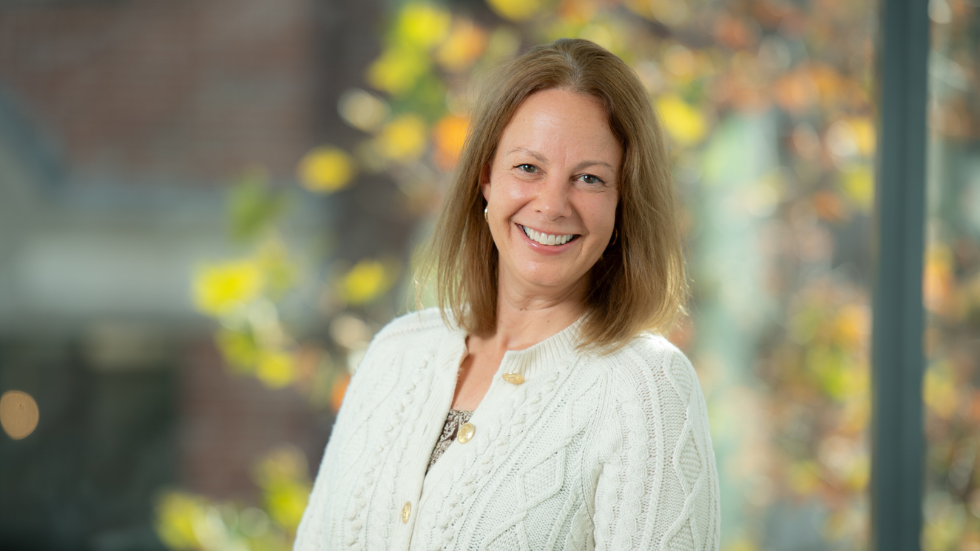What makes Brown’s UEP program unique?
Brown’s UEP program is an intensive one-year (or extended two-year) program that prepares students to drive change in urban education. The intentional curriculum blends policy analysis, quantitative data analysis, and deep engagement with the urban context, all tied to real-world application through a hands-on internship experience.
Students benefit from a small, collaborative cohort and a 3:1 student-to-faculty ratio, fostering mentorship and access to teaching assistant positions, research opportunities, and leadership roles. Through internships with organizations at the forefront of urban education policy, students apply their learning in impactful ways, and this positions them to be change agents in the field from day one.
How does the UEP program prepare students to address the most pressing challenges in urban education policy today?
The UEP program prepares students to tackle the most pressing challenges in urban education policy through a combination of cutting-edge research, practical skill development, and immersive learning experiences.
Our faculty are leading scholars in the field, conducting research that directly impacts urban education. To mention the work of just a few faculty members—Professor Lindsay Page explores the effectiveness of educational policies and programs, Professor Christopher Cleveland focuses on gifted and special education policy, and Professors John Papay and Matt Kraft examine policies that affect teachers. Their work—and the work of other faculty members—informs the curriculum, ensuring students engage with real-world issues affecting urban schools, educators, and students.
Beyond theory, students gain practical, in-demand skills in quantitative data analysis, policy evaluation, strategic management, and leadership, equipping them to drive meaningful change. Coursework emphasizes understanding community contexts so students develop a nuanced approach to policy work.
Through case studies, debates, and hands-on problem-solving, students grapple with real challenges facing urban education today, preparing them to be effective, equity-driven policy leaders.
What kinds of hands-on experiences does the program offer?
The UEP program emphasizes applied learning through internships and partnerships with organizations such as the Rhode Island Department of Education (RIDE), Providence Public School District (PPSD), Equity Institute, Providence Promise, and Parents Leading for Educational Equity (PLEE).
Students begin with summer projects in urban education settings and progress to school-year length internships that provide deeper policy work, ensuring they graduate with direct experience in research, advocacy, and implementation.
What career paths do UEP graduates typically pursue?
UEP graduates lead change in education policy at local, state, and national levels. Many pursue roles in urban school districts and charter organizations, working in data analysis, early childhood education, finance, human resources, and policy development—with titles like data analyst, policy analyst, and classroom teacher. Others take on key roles in state departments of education, specializing in K-12 curriculum, college access policy, and leadership positions such as chief of staff.
Some graduates enter elected office, while others drive change in education-focused nonprofits like City Year, Equity Institute, and United Way. Many take on roles in government relations, education policy and advocacy, or even found their own organizations.
UEP alumni also contribute to higher education, working at Brown and other universities as research assistants, educational consultants, and policy experts, while some pursue PhDs to further their impact in research and academia.
Wherever they go, UEP graduates are equipped to be leaders, advocates, and innovators in urban education policy.
What advice would you give to someone considering the program?
If you're considering the UEP program, my biggest advice is to be intentional about your experience, from your internship to your long-term career goals.
- Choose your internship wisely. Think about whether you want to explore a new type of organization or go deeper in an area where you see yourself working post-graduation. Your internship is more than just an opportunity to gain experience – it helps ground your learning in real-world contexts.
- Think long-term. Where do you see yourself in 10 years? How might the skills, knowledge, and professional network you gain in UEP help you get there? The program offers cutting-edge training and strong connections to leaders in urban education policy, which can be invaluable in shaping your trajectory.
- Have a career path in mind. While you don’t need to have everything figured out, coming into the program with a sense of what you might want to do after graduation will help you make the most of the experience.
UEP is a fast-paced and immersive program, so the more clarity and intention you bring or work toward achieving, the more you'll get out of it!
What’s one thing you hope every UEP graduate takes away from the program?
I hope every UEP graduate leaves the program with a deep understanding of the systemic forces shaping urban education and the skills, knowledge, and confidence to lead change.
Urban education policy is complex and is shaped by historical inequities, political dynamics, and community needs. The UEP program equips students not just to analyze these challenges, but to actively work toward solutions, whether through data-driven policy, advocacy, or leadership in schools, government, and nonprofits.
Discover how Brown’s UEP program can prepare you to drive change in urban education—learn more on our website or request information now!
